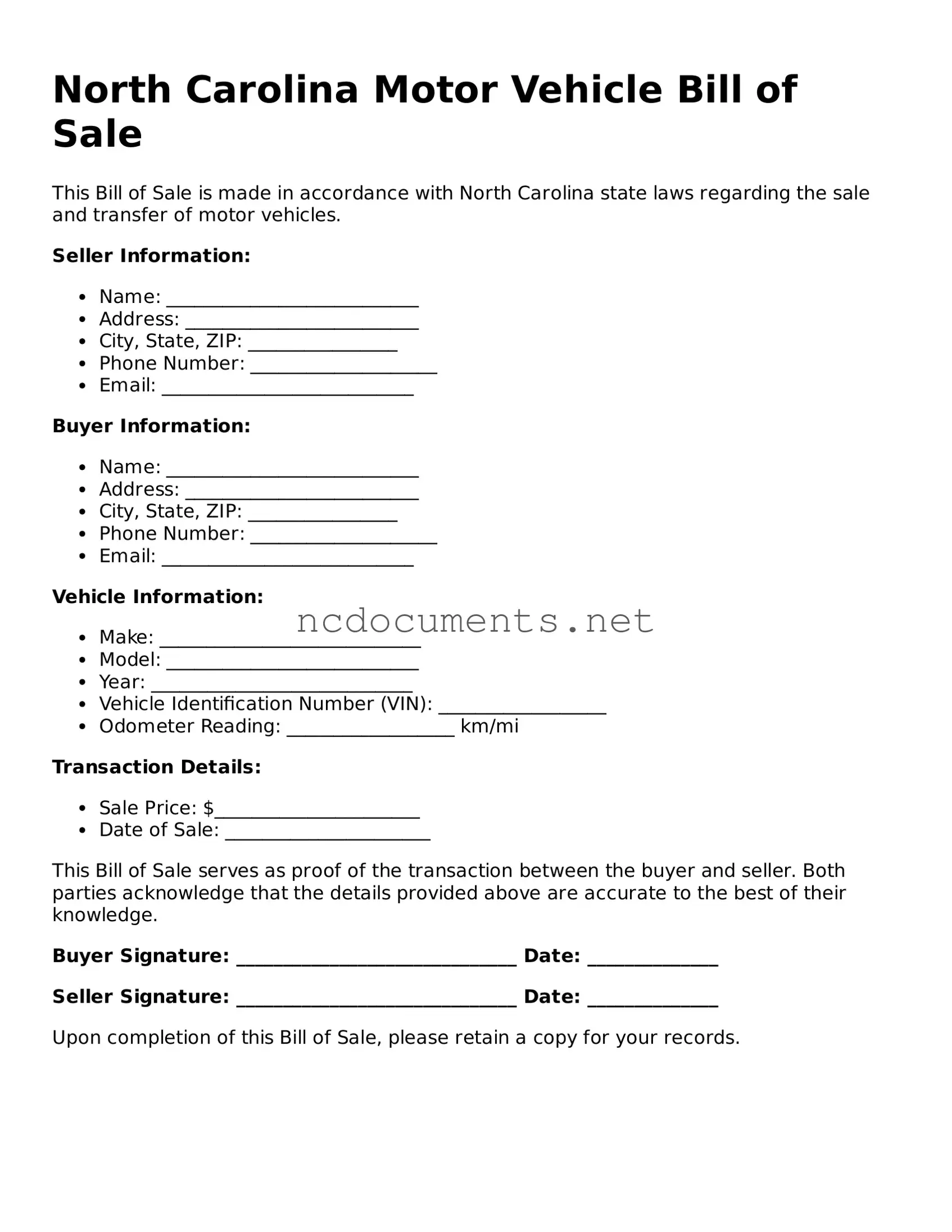The North Carolina Motor Vehicle Bill of Sale is similar to the General Bill of Sale, which serves as a record of the transfer of ownership for various personal property items. This document typically includes details such as the buyer and seller's names, a description of the item, and the sale price. Like the Motor Vehicle Bill of Sale, it provides legal proof of the transaction and can be used for tax purposes or to resolve disputes regarding ownership.
Another related document is the Vehicle Title. This official document proves ownership of a vehicle and is necessary for registration. While the title contains information about the vehicle's history, such as previous owners and any liens, the Bill of Sale confirms the transaction between the buyer and seller. Both documents are essential for a smooth transfer of ownership.
The Purchase Agreement for a vehicle is also similar. This document outlines the terms of the sale, including the purchase price, payment method, and any warranties or conditions. While the Bill of Sale serves as a receipt, the Purchase Agreement details the expectations of both parties before the transaction is completed. Together, they create a comprehensive record of the sale.
The Odometer Disclosure Statement is another important document in vehicle transactions. This form is required by federal law to disclose the vehicle's mileage at the time of sale. It helps prevent fraud related to odometer tampering. While the Bill of Sale captures the sale details, the Odometer Disclosure Statement specifically addresses the vehicle's mileage, ensuring transparency for the buyer.
The Release of Liability form is crucial when selling a vehicle. This document protects the seller from future liabilities related to the vehicle after the sale is completed. By submitting this form to the Department of Motor Vehicles, the seller officially informs the state that they are no longer responsible for the vehicle. The Bill of Sale complements this by documenting the transaction itself.
The Donation Receipt is relevant when a vehicle is given as a gift. This document serves as proof of the donation for tax purposes, similar to how the Bill of Sale provides proof of a sale. Both documents validate the transfer of ownership, although the Donation Receipt may include additional information about the charitable organization if applicable.
The Vehicle Registration Application is also similar, as it is necessary for the legal operation of a vehicle on public roads. This document must be completed after a purchase and often requires the Bill of Sale as proof of ownership. Both documents work together to ensure that the vehicle is properly registered under the new owner's name.
The Insurance Policy is another important document that relates to vehicle ownership. While the Bill of Sale confirms the transfer of ownership, the Insurance Policy provides coverage for the vehicle against potential damages or liabilities. Buyers typically need to obtain insurance shortly after acquiring a vehicle, making both documents essential for responsible ownership.
Finally, the Affidavit of Ownership can be necessary in certain situations, particularly when the original title is lost. This sworn statement asserts that the individual is the rightful owner of the vehicle. The Bill of Sale serves as supporting evidence of ownership, reinforcing the claims made in the Affidavit. Together, they help clarify ownership in cases where documentation is lacking.

